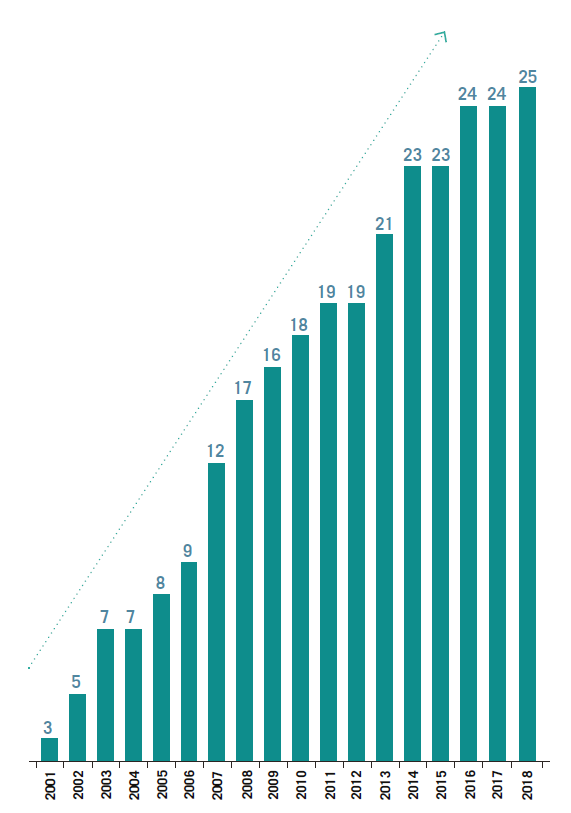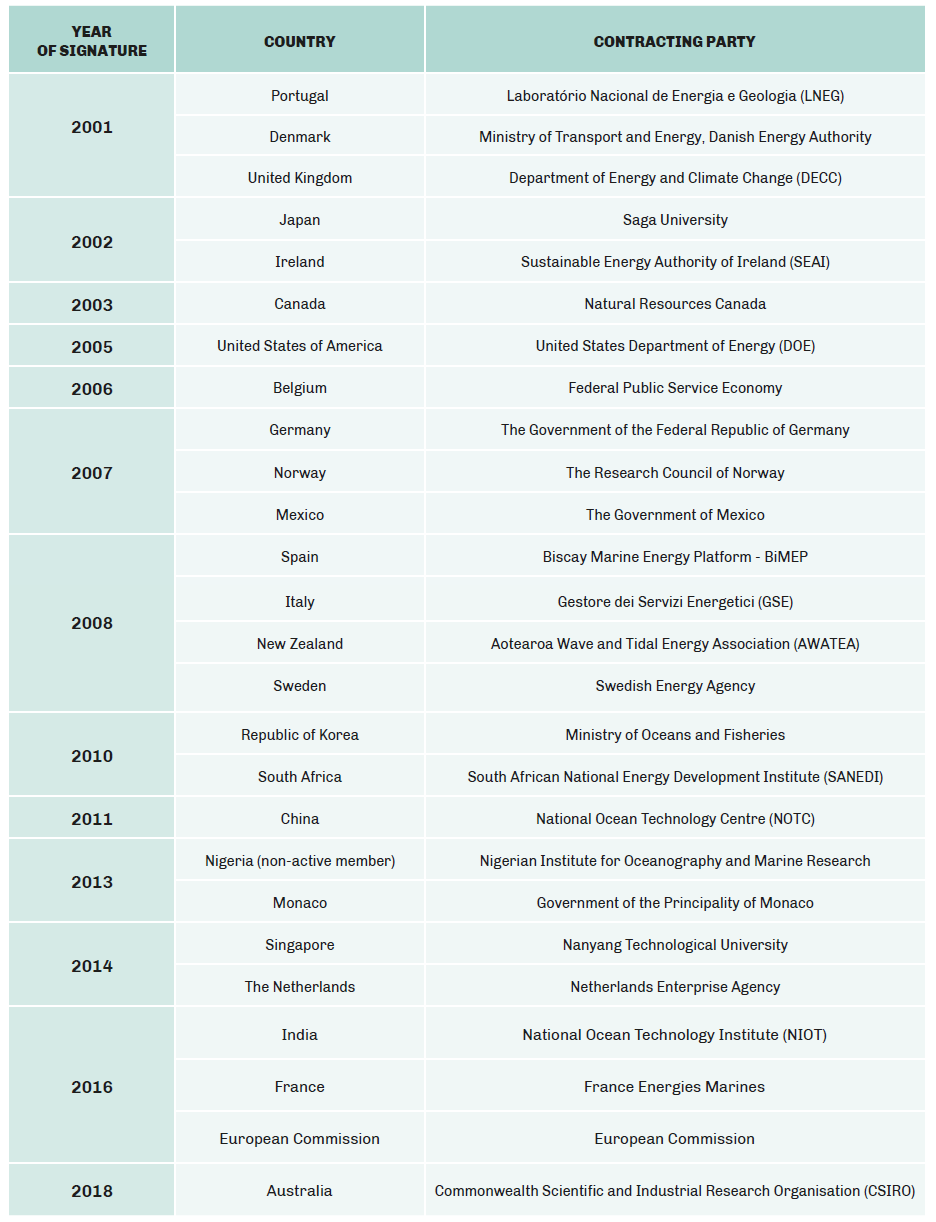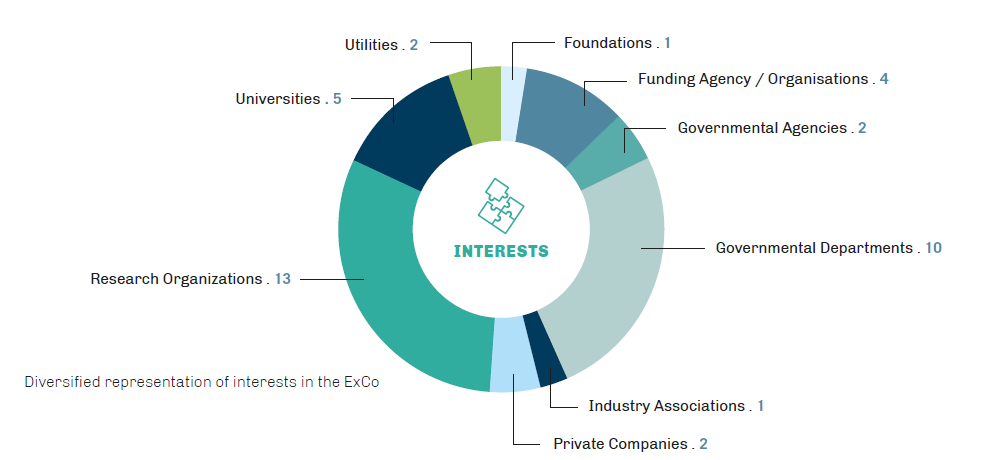Membership
The Technology Collaboration Programme on Ocean Energy Systems (OES) was initiated by three countries in 2001. As of December 2017, 24 countries and the European Commission are members of the OES (Fig.1).
National governments appoint a Contracting Party to represent the country in the Executive Committee (ExCo) (Table 2). The Contracting Party can be a government ministry or agency, a research institute or university, an industry association or even a private company. Governments also nominate alternates, who may represent the government at ExCo meetings, if the nominated representative is unavailable. Consequently, there is a diversified representation of interests in the ExCo (Fig. 2). The ExCo considers this diversity to be a key strength of the organization and will strive to maintain this balance of
representation.
Communication continues with the governments of the following countries: Australia, Argentina, Brazil, Chile, Colombia, Finland, Ghana, Greece, Indonesia, Malaysia, Malta, Mauritius, Peru, Philippines, Russia and Uruguay.
The ExCo has adopted a practice of encouraging potential member countries to send observers to ExCo
meetings. Observers are invited to attend up to three meetings, after which it is expected that the country will commit to joining the ExCo. This has proven an effective way of encouraging membership.
Fig. 1: OES Membership Growth

TABLE 2: CONTRACTING PARTIES
 |
Fig. 2: Diversified representation of interests in the ExCo




